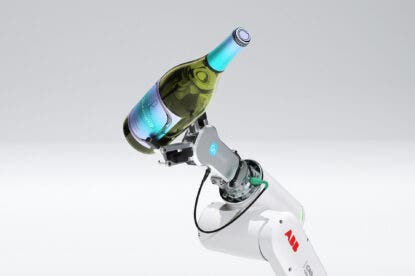Nicknamed “The Mayor of Napa Valley,” Melody Fuller has brought forth incredible change in the wine industry. She’s worked for the last four decades as a wine, food and travel writer, and is the founder and president of the Oakland Wine Festival and The Exceptional Vine.
Her first introduction to wine was in 1979. A sophomore at Mills College in Oakland, California, Fuller would often drive to Sonoma County to learn more about wine. She credits the generosity and knowledge shared by those vintners for inspiring her love for wine, which led her to photograph and write about wine at home and abroad. Ever since, she has focused on learning everything she can about the land, the grapes and the business, all the while building lifelong relationships and friendships throughout Napa Valley.
Fuller was a former advisor at the The Symposium for Professional Wine Writers at Meadowood Napa Valley.
“As a writer, this industry requires me to keep my hiking boots, running shoes, and integrity side-by-side with my yellow legal pad, pen and laser focus,” she says. “Sometimes, I need my hiking boots to wade through counterfactual narratives. And sometimes, I need my running shoes, so I can take the miles ahead of me, one step at a time, towards global and local industry wide integration. Without my integrity, I am nothing.”
What do you wish you knew when you started in the industry?
In 2022, my now ten-year-old wish list for the high-end wine industry has not changed. I wish for truth, honesty, transparency, accountability, and a global and vigorous reckoning. My wish for those entering the industry is that they value and prioritize reading and research so they may become better educated, correctly informed, and conscious of the vast amount of work, sacrifices, and contributions made by those who came before them. This level of sobriety may also help them as they work hard, make sacrifices, and provide meaningful contributions within the wine industry.
This is my 43rd year in the wine industry. My primary wish is for everyone to help someone. People helped me and some continue to help, support, and coach me.
Your career is rooted in wine education and creating spaces for people to gather around wine. As media professionals, what can we do to bridge the gap between the consumer and various players in hospitality to make this a more inclusive industry for all?
Thank you. I am passionate about my work in wine, and I take what I do seriously. I must hold my architect and engineer hats in one hand while hoping that the wine industry is just a little better because of the spaces created for others.
We must recognize that globally, there are two silos of wine media professionals. To be more accurate, one silo, the white media professionals, has existed for thousands of years as evidenced by writings predating The Bible’s own testaments about wine. The second, much dwarfed silo, the non-white media professionals, has existed since around 1990, which is a mere 32 years. We must speak truth to this atrocity.
The gap is a misnomer. The gap is indifference, self-preservation, self-interest, divergence, convenient and popular fragilities. Timely and coordinated six-figure strategies to protect the wine industry’s shared moral, ethical, and other collective values do not include inclusivity.
If the ‘summer of reckoning’ two years ago taught us anything, it’s that scripted press releases, street-language toned social media posts don’t bring forth change. The wine media is not responsible for inclusivity. Ask them. The executives in wine publishing, the corporate shareholders, and stakeholders are responsible – and the real change must start with them.
Should the global and local consumer stop, think, start asking questions, and requesting valid receipts, then–and only then–will tiny shifts happen in the wine industry.
Why do you think it is so important to have diverse perspectives of storytelling within our industry?
While the wine industry is fairly lockstep and of one voice, it is not a monolith.
In my opinion, the plethora of good wine writing has not seen its best days. The pen is powerful, and publishing changes worlds. No non-white wine writer has scaled the tasting room or chateau walls and become a publisher or reached any executive level in wine writing, ever. This historical fact is not one that should sit well in publishing or in the wine industry. So, in 2022, I think it is not so much about the wine writer as it is about the 99.9% of the wine writing (and wine) industry needing to embrace different and unique perspectives.
Every major industry in our world, from food, technology, entertainment, sports, and so on, has made visible and verifiable strides to diversify the voices and faces. The wine world could only benefit from having as many voices as possible using every literary genre to share whatever they want about wine.
Who’s the most underrated person in the drinks wine industry?
The consumer. Underrated, underestimated, undervalued, and by design under educated.
You’re at a dive bar. What do you order?
For starters, I do not order wine or beer at a dive bar, so that’s that. (Laughs.) But I would order whatever the bartender deems to be “the best” drink – specifically at Harry’s Bar in Venezia, Italy. While the bartender makes my drink, I engage. “Please tell me the story of why this drink is the best,” I say. I like stories, so I listen, talk, and learn. We are at our best when we learn from and build authentic relationships with one another.
Published: July 19, 2022















